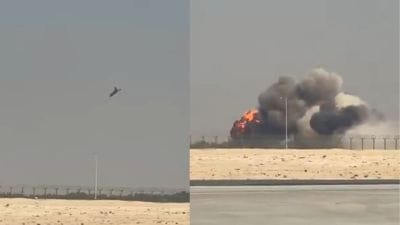ISRO teams analysing data to pinpoint GSLV failure
The Indian Space Research Organisation (ISRO) was analysing data from the Geosynchronous Satellite Launch Vehicle (GSLV-F06).
The Indian Space Research Organisation (ISRO) was analysing data from the Geosynchronous Satellite Launch Vehicle (GSLV-F06) that exploded just after launch on Saturday to know what caused the disaster even as a veteran space scientist vouched for the robustness of the indigenous launch vehicle.The ISRO said an expert committee is likely to be formed shortly to give a report on its second space launch failure this year. The GSLV was carrying a domestic communication satellite Teams are looking at the data to find out what happened,ISRO spokesman S Satish said. A failure analysis committee is likely to be constituted in the next one or two days, he said.Powered by a Russian Cryogenic engine at the upper stage,the GSLV-F06,which was carrying a GSAT-5P satellite on board,failed in its mission in the first stage when a snag developed less than a minute after lift-off from the Sriharikota spaceport in Andhra Pradesh.Veteran space scientist and former ISRO chief U R Rao,however,vouched for the robustness of the indigenously-built GSLV,saying it was a well-proven space rocket,and maintained that quality problem had led to the failure of the multi-crore mission.Unlike the GSLV failure on April 15 when the fault was at the cryogenic stage,this time it was at the first stage itself,Rao said. He said the first stage is well-proven and we must be able to get back to the rails very quickly.Once in a while,these things (failures) do happen. It has happened with Ariane (European space consortium Ariane) and Shuttle (of NASA), he said.Rao does not believe that the failure would lead to delay in the 2013-scheduled Chandrayaan-2 mission,saying: This (GSLV) is a proven system.



- 01
- 02
- 03
- 04
- 05




























